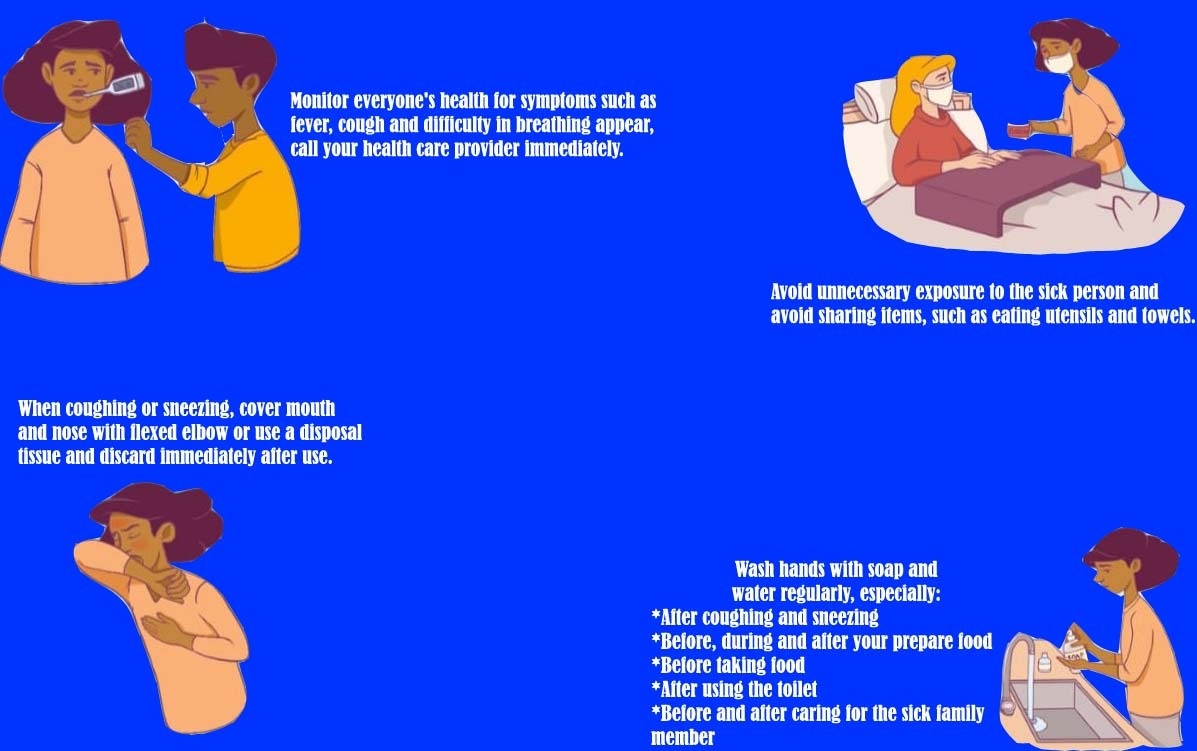Blog Content
Frequently asked questions of patients & Discharge Instructions and Home Care of COVID-19 Patients
Question- What is the possibility of COVID-19 recovery?
Answer- Most
people who get COVID-19 recover from it. Most people have mild or
moderate symptoms and can recover by symptomatic and supportive care. Around 8
out of every 10 people with COVID-19 will have mild symptoms. Around one in
six people will become severely ill and require hospital care. Data suggests
that around 2-3 in 100 people who get COVID-19 will die. If you have a cough,
fever, and difficulty in breathing call your healthcare provider. If you have a
fever and live in an area prone to malaria or dengue take medical care
immediately.
Question- Is oxygen deficiency will occur after
prolonged use of Masks?
Answer-: The
longtime continuous use of masks, when worn properly, does not cause CO2
intoxication or oxygen deficiency. The prolonged use of masks could be
uncomfortable. While wearing masks, make sure it fits properly and that it is
properly tight to allow you to breathe normally. Do not re-use a disposable
mask and always change it as soon as possible.
Question- How
to take care of patients with suspected or confirmed COVID-19 at home?
Answer-Home
care for people with suspected or confirmed COVID-19
For care-providers
Ensure the sick person rests, drinks
plenty of fluids, and eats healthy nutritious food. Wear a mask when in the
same room as a sick person. Never touch the mask or face during use and discard
it after using it. Frequently wash hands with soap and water or alcohol-based
hand rub, especially: After any type of contact with the sick person or their
surroundings, Before, during, and after preparing food, Before taking food,
After using the toilet, Use dedicated eating utensils and linen for the sick
person. Wash them every-time after used by the sick person with soap and water.
Identify frequently touched surfaces by the sick person and clean and disinfect
them daily. Call your healthcare provider immediately if the sick person
deteriorates or experiences difficulty in breathing.
For sick Person
If you are sick having fever and cough,
wash your hands frequently with soap and water or with alcohol-based hand rub.
Stay at home, do not go to work, school of public places. Stay in an isolated
room from other family members, but if not possible wear a mask and keep a
distance of at least 1 meter (3 Feet) Ideally 6 Feet from other people. Keep
the room well ventilated and if possible use a separate bathroom.
When coughing or sneezing, cover mouth
and nose with a flexed elbow or use disposable tissue and discard in the
covered dustbin after use. If you feel difficulty in breathing, call your
health care provider immediately.
Stress Management during the COVID-19
outbreak
It is normal to feel sad, anxious,
stressed, or angry during a crisis.
Taking to people whom you believe,
he/she can help. Be in touch with your friends and family. If you must stay at
home, maintain a healthy lifestyle - including proper diet, sleep, exercise,
and social distancing with loved ones at home and in touch with other family
members and friends by email and phone. Don't use smoking, alcohol, or other
drugs to reduce your stress.
If you feel stressed, talk to a healthy member or counselor. Make a
plan, where to go to, and how to seek help for physical and mental health needs
if required. Get the facts; collect information that will help you accurately
determine your risk so that you can take proper precautions. Find a reliable
source on which you can trust such as the WHO website or Ministry of Health and
family welfare website, or a local or state public health agency.
Limit stress and anger by reducing the time you and your family spend in
watching or listening to news that you feel as upsetting. Recall your abilities
and skills you have used in the past that have helped you to manage previous
life's adversities and utilize those skills to manage your emotions during the
challenging time of this pandemic.
All members of the household
Wash hands with soap and water
regularly, especially:
*After coughing and sneezing, Before,
during, and after your prepare food, Before taking food, After using the toilet, Before and after caring for the sick family member, Avoid unnecessarily
exposure to the sick person and avoid sharing items, such as eating utensils
and towels.
When coughing or sneezing, cover the mouth
and nose with a flexed elbow or use a disposal tissue and discard immediately
after use.
Monitor everyone's health for symptoms
such as fever, cough, and difficulty in breathing appear, call your health care
provider immediately.
